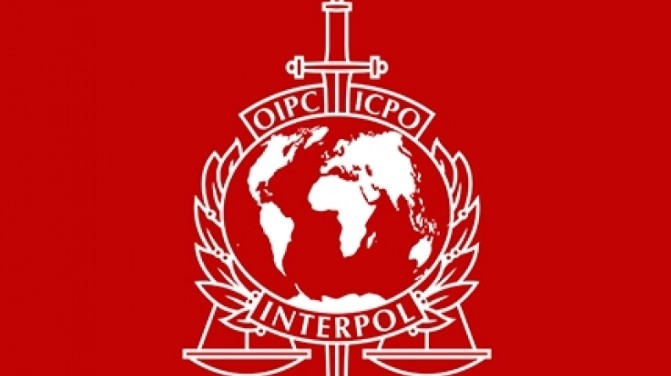Interpol, the International Criminal Police Organization, is often portrayed in popular culture predominantly political, as a supranational police agency with officers ready for global arrests and extradition. However, this depiction is a common misinterpretation that does not adequately show Interpol’s actual authority and restrictions.
Interpol is designed to enable global police cooperation and collaboration rather than function as an international criminal police organization or a straight law enforcement body. It is essentially a cooperative institution between its various member countries, nations, or countries of state. However, it lacks the power to formally create an Interpol arrest warrant in the conventional sense most people would understand.
Often wrongly referred to in public debate as an International arrest warrant, Interpol may issue what is known as a “Red Notice.” A Red Notice is a request to the other member nations, states, or countries to find and maybe arrest a missing person or someone awaiting extradition. Based on a legitimate national arrest warrant, it is utilized to notify the 134 members of the wanted missing person or status of an individual.
But can a person be arrested with the help of the international tribunal, Interpol?
Unequivocally no. Interpol does not arrest individuals itself. Instead, it is an international tribunal that serves as a conduit for the rapid and efficient international exchange of information on crimes and suspects. Within their own borders, national law enforcement agencies still have de facto powers of arrest.
Interpol’s actions mainly help in coordination and facilitation. It provides law enforcement agencies with various databases and communication tools to share information on foreign crimes and criminals. For countries tracking fugitives across national borders, these tools are indispensable.
How does Interpol affect arrests?
Through its efficient communication systems and a strong network of member countries, Interpol significantly influences the process of international arrests. Interpol itself cannot arrest individuals; hence, addressing the sometimes misperceptions of an Interpol international arrest warrant is a task force with not only legal value but as important as legal value for the facilitation and coordination of global police cooperation.
One of Interpol’s primary responsibilities is sending color-coded notices, most famously the two colour-coded notices – red colour-coded notices, and green notices. Red notice is not a direct summons or request for arrest, it is a global red notice used to locate and capture a person sought for by legal authorities. This notification is necessary for sharing information on fugitives with law enforcement authorities among all union members.
Moreover, Interpol helps local law enforcement agencies by providing them with necessary information and statistics. Using its large databases, Interpol offers access to fingerprints, face recognition data, and even stolen or lost travel document information. This information is crucial for national agencies to react correctly to an interpolation warning.
Moreover, Interpol helps local law enforcement authorities improve their capacity through training and arming them with the necessary tools to manage difficult international human rights issues. This helps to ensure that local policies follow international human rights standards and improves the efficiency of controlling cross-border crimes, thus supporting better operations and legal procedures.
Can Interpol arrest in any country?
The organization’s authority is limited to facilitating international police cooperation and does not include the immediate ability to locate and arrest anyone. Consequently, the question of whether Interpol has the power to arrest anyone is not directly addressed. Local law enforcement authorities, national central bureau, and judicial authorities in each of their respective member countries or nations are responsible for making arrests.
When the Interpol general secretariat sends a red notice or international alert, it informs its members of individuals who are wanted persons being investigated or serving sentences based on an arrest warrant issued in another member state or nation. The local law enforcement or national central bureau of the member state in each nation is responsible for determining how to handle these red notice notifications. Although they could locate and apprehend an individual using INTERPOL’s data, the national central bureau and justice authorities always conduct the arrest within their own legal system.
What crimes does Interpol work on?
The emphasis of Interpol’s rules spans a broad spectrum of international crimes, which calls for the assistance of global police forces for cooperation and collaboration across boundaries. The company is heavily engaged in battling international terrorism, human trafficking, drug smuggling, and cybercrime—areas where crimes regularly cross state lines and need great worldwide collaboration.
In the field of terrorism, for example, supports analytical assistance, enables the sharing of information, and helps nations to mobilize resources. Interpol offers a forum for nations to coordinate and exchange vital information in human trafficking and narcotics smuggling, therefore disrupting networks and bringing offenders to justice.
With its global character, cybercrime plays a vital role in improving the capacities of its member countries and nations via training and offering a platform for information exchange regarding cyber hazards and hostile organizations. Interpol helps in all these areas by making sure that member countries and nations’ activities against organized crime are well-coordinated and thus maximize the worldwide response to challenging organized crime and situations.
Can INTERPOL target specific individuals?
Interpol may concentrate on certain people mainly by using the international notice system of Red Notices and diffusion notices. These instruments are essential in the scene of international law enforcement as they notify its members about those sought for prosecution or serving sentences. The operation responds to requests from member nations based on Interpol red notices and requests, or legitimate national legal warrants, not started by Interpol unilaterally notices are published aiming at individuals.
Based on an outstanding arrest warrant issued for serious ordinary law crimes against a person in the judicial jurisdiction of one of the members, a Red Notice is effectively a worldwide request for the location and arrest of a person sought by legal authority. A Red Notice does not allow ordinary law crimes of any nation to make an international arrest request or warrant for someone based alone on its issuing a red notice. It is not an international arrest request or a warrant of similar legal value. It is a worldwide alert system for similar legal actions.
Though they are less formal than red notices, and transmitted directly by the member state of nations via channels, diffusion notices are published comparable to Red Notices. Often employed in dire circumstances, they are used for the fast distribution of international alerts, of important crime-related information.
Having a legitimate arrest warrant in the subject of extradition to the original nation and making sure the case corresponds to serious ordinary law crimes or to the constitution of the member state, which bans any interference in private disputes or activity of a political, military, religious, cultural norms or racial nature, define the grounds for issuing a Red Notice or a diffusion request in adherence to Interpol’s constitution.
Therefore, even if Interpol does not directly request an international arrest warrant or target specific countries or people, it promotes targeted worldwide collaboration based on strong legal grounds and subjects all member nations and countries to stringent standards guaranteeing justice and the preservation of human rights and international norms.




